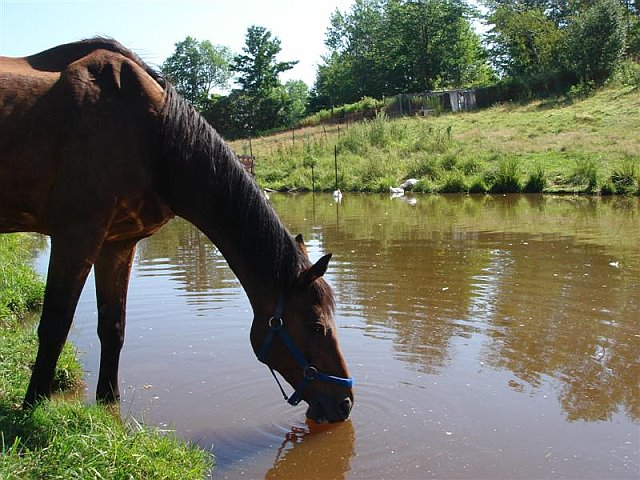Here in Britain we may not get a massive amount of sunshine and heat, but each year without fail we generally do get one or two heatwaves of note. For humans it’s a good excuse to dust off the old barbecue, head to the beach or just indulge in an ice cream. But for horses it can be an unpleasant, and even dangerous time. Here we present a guide to keeping your horse cool this summer.
1. Keep your horse well-hydrated – As with all animals, horses need for water rises considerably during a heatwave. According to US veterinary practice Doctors Foster and Smith, “average size work horses can consume over 25 gallons of water per day when the temperature is above 70°F.” As a general rule during hot weather conditions then, always make sure that your horse has access to an ample supply of fresh water, particularly when transporting via horsebox.
2. Don’t overwork them – On the hottest days of the year, it may be prudent not to ride your horse or cause them to exert themself in any way, particularly if it’s an older animal. People can get very hot and bothered during a heatwave, and for horses this is magnified somewhat. When the weather is hot, don’t push your horse too hard, and if it’s very hot consider letting them rest until the evening when the air is much cooler.
3. Provide easy access to shade – Aside from access to water, the ability to get out of the sun and rest in the shade should be considered of paramount importance for horses during a heatwave. Your horse needs to be able to get out of direct sunlight whenever he or she chooses .The British Horse Society even goes as far as saying, “in fact, it might be sensible to keep horses stabled through the hottest parts of the day providing their stable remains cool”.
4. Ensure that indoor spaces are well ventilated – Shade is all well and good, but if the space in which you keep your horse is not well ventilated it can turn into a virtual oven. Provide extra ventilation by opening stable windows and air vents, or leaving the stable door open during the day. If ventilation remains a concern, you might consider installing stable fans to get air flowing through the space. Ventilation is of particular importance when transporting your horse via horsebox or trailer. Ensure that there is plenty of airflow while the vehicle is moving, and avoid leaving the horse in the vehicle while stationary for any length of time.
5. Reconsider travelling – During a heatwave it may be prudent not to transport your horse at all wherever possible. Travelling generally involves tight, confined spaces with limited airflow, and this can cause your horse added stress and increase the chances of him overheating. Travelling for long distances is particularly inadvisable, and should be strongly reconsidered. If there is no way to avoid such journeys, be sure to break them up into short segments with regular breaks, and provide adequate ventilation and water.
6. Use electrolyte supplements – As well as losing fluid during sweating, horses also lose electrolytes, and these need to be replaced to ensure that your horse stays healthy. Chronic electrolyte loss can result in colic, muscle cramps and other conditions, so give your horse an electrolyte supplement during hot weather.
Horseboxes can also have problems during the hot weather, so it may be prudent to consider adding breakdown cover to your horsebox insurance policy. For advice on any aspect of equine insurance or horsebox insurance, get in touch with Park Insurance.

